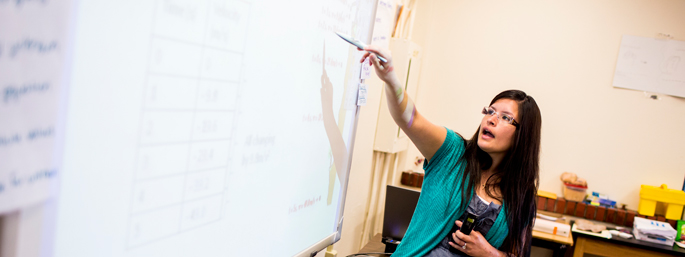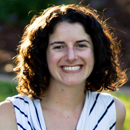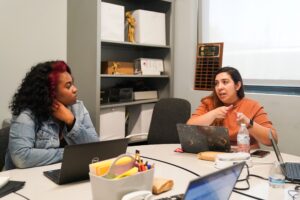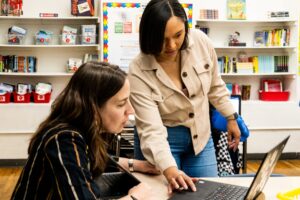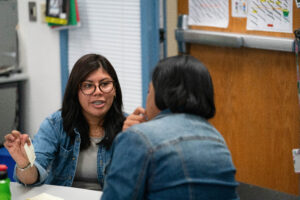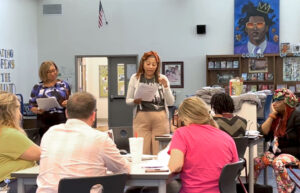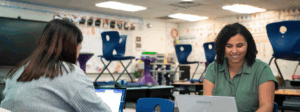It seems obvious: to get to know someone, you’ve got to meet face-to-face. That’s one of the reasons why every one of the 32,000-plus TNTP Teaching Fellows we have recruited and trained over the past 15 years has gone through a rigorous selection process that includes a day-long interview.
Yet earlier this week, when we opened the application period for our 2014 Teaching Fellows programs, we also announced that, for the first time, we will not be interviewing candidates in person for most of our programs. What gives?
The most important reason for this tough decision is simple: evidence. When you’re making decisions about who should and should not be asked to lead a classroom, you want the best indicators of their future effectiveness at your fingertips. And when we looked closely to see whether what we learned during our in-person interviews of Teaching Fellows candidates corresponded to their actual performance in the classroom later on, we found that there was almost no relationship between the two.
That’s not to say that we think selection is unimportant. Over time, we have honed in on the most important characteristics our candidates need to be successful in our programs, including strong critical thinking, a belief that teachers can have a big impact on student achievement in struggling schools, professionalism and an ability to apply feedback quickly. The selection process offers us a critical chance to identify candidates who do not fit the profile our Fellows need to be successful. But we also know that it takes much more to be a great teacher.
The key question is the degree to which key traits can be judged in a brief interview context versus more extensive interactions in a more authentic setting. As we’ve overhauled our training during the past two years, we’ve begun to prioritize hands-on practice and intensive, real-time coaching. Because we score the practice sessions, we collect a lot of data, and over the course of our 5- to 6-week summer program, we learn exponentially more about the likelihood our candidates have of being successful in the classroom than we could ever hope to learn during a single in-person interview. Research supports this: studies have found that the best predictor of future success is past performance.
So while we are not turning our backs on selection or lowering our standards, we are trying to invest the appropriate amount of resources in the selection process itself. Instead of in-person interviews, we’ll conduct interviews by phone and focus the bulk of our energy and resources on ensuring that Fellows who complete our programs attain a high bar for early-career performance. Less guessing, more assessing.
By moving to telephone interviews, we’ve reallocated some resources from selection so staff can spend more time helping Fellows improve during training—and make better decisions about who should advance and enter the classroom when summer training ends. We’re spending our time and money where we can make the biggest difference.
Virtual interviews also have important benefits for candidates. We used to ask candidates to interview at their program of choice, even if it meant an expensive plane flight, which was a deterrent for many of our strong candidates and a disadvantage for less accessible programs. Also, because candidates no longer need to wait for limited interview spots, they are informed of their decision much sooner and can start planning for their new career. The earlier we notify them, the less likely they are to consider other options, and the more likely we are to get them into a classroom that needs them.
There are trade-offs. The hardest part of this decision is that our interview events were incredibly inspiring, and gave our candidates the opportunity to learn about our programs and meet other potential Fellows passionate about teaching in high-need classrooms. I always leave interview events with a big smile on my face. We plan to provide other opportunities for candidates to engage with us and with each other, including mock trainings, webinars, or school visits (follow us on Facebook to hear more, or register for email updates on our application page). But we know that not everyone will be able to take advantage of in-person events.
We will miss getting to meet each of our candidates in person, but we’ll take heart in the expanded opportunities ahead to give next year’s class of Fellows the elite support and hands-on training that can help them become transformative teachers. What’s more inspiring than that?
